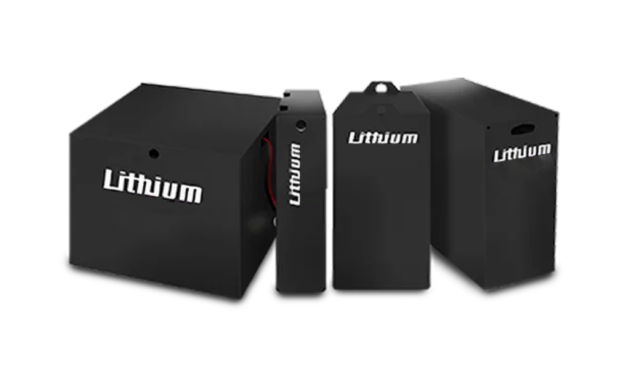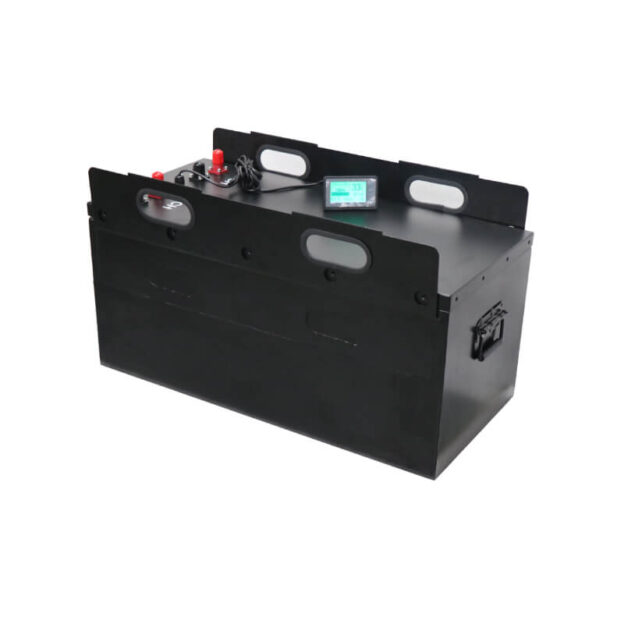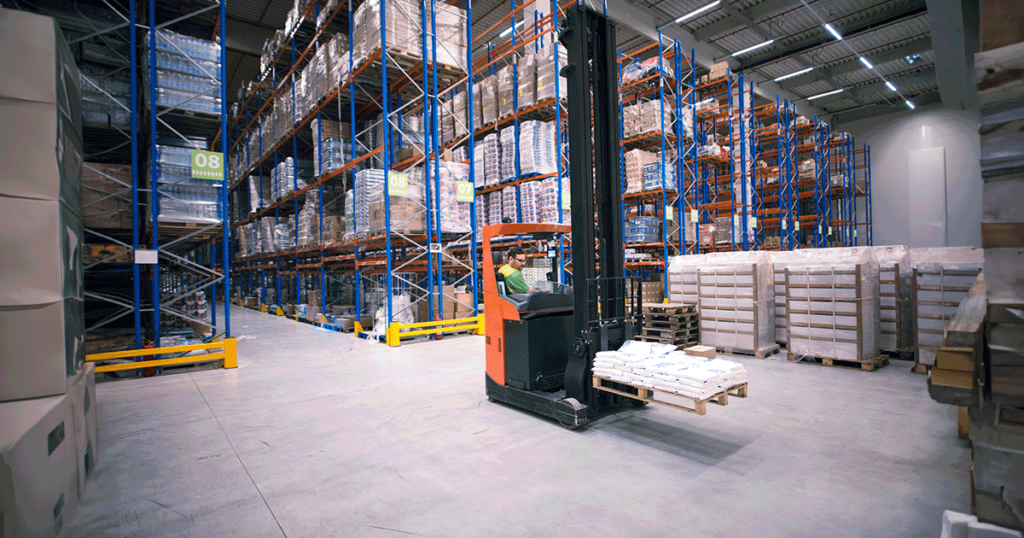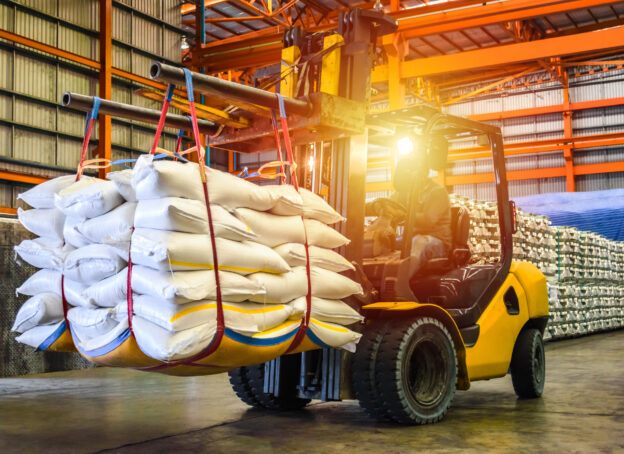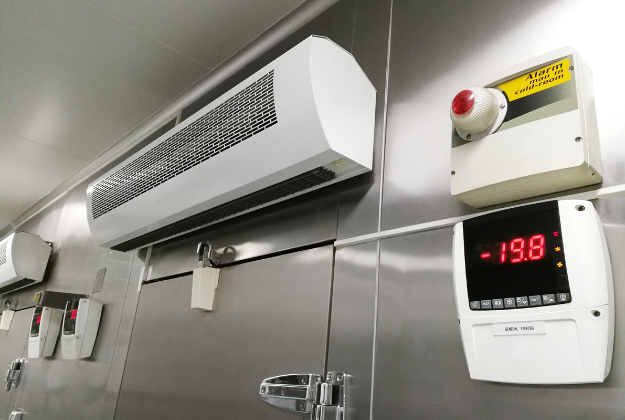In the realm of handling materials, efficiency is crucial. Imagine batteries that are customized just for this job, and even better if they use lithium. This blog discusses why using lithium batteries in material handling is super important. Let’s explore why having personalized solutions, especially lithium material handling batteries, makes a big difference in making things run smoothly
Material Handling Realities: Choosing the Right Batteries for Every Industry
When it comes to handling materials efficiently, it’s essential to grasp the unique needs across various industries. Different sectors have diverse requirements, from warehouses bustling with inventory to manufacturing plants coordinating complex tasks. Generic battery solutions often fall short of meeting these specific demands. They are like trying to fit a square peg into a round hole—close, but not quite right.
Efficient material handling is at the core of smooth operations across diverse industries. In this landscape, the choice of batteries holds significant weight. While generic batteries may seem like a convenient solution, the unique demands of material handling underscore the importance of opting for specialized lithium material handling and forklift batteries. Here’s why these tailored solutions outshine generic alternatives.
1. Boosting Performance:
Lithium batteries give strong power, suiting various machines better than generic ones. This means reliable performance, less need for constant charging, and overall improved efficiency.
2. Tough in Tough Spots:
Lithium batteries are built strong enough to handle harsh industrial conditions. This matters a lot for forklifts, as it helps the battery last longer and keeps it working well.
3. Fast Charging for Smooth Work:
Lithium batteries charge up quickly, unlike generic ones. This means less waiting time, keeping forklifts and other equipment going without interruptions.
4. Works in Any Weather:
Lithium batteries work well in hot or cold temperatures. They stay reliable and efficient, no matter the weather conditions.
5. Easier upkeep:
Lithium batteries for material handling and forklifts have special features that make maintenance easier. This helps a lot in keeping everything running smoothly, saving time and money.
Powering Efficiency: The Benefits of Custom Lithium Batteries in Material Handling
When it comes to upgrading your material handling game, custom lithium batteries are the game-changers. These batteries are like all-in-one tools, perfect for handling various tasks. And yes, they might seem a bit pricier initially, but trust me, the long-term benefits are worth it. Here’s why:
Versatility in Material Handling:
Custom lithium batteries are the superheroes of the material-handling world. They’re versatile and can power up different machines seamlessly. Whether it’s in a bustling warehouse or a busy manufacturing plant, these batteries adapt to the situation like pros.
Tailored Solutions for Your Needs:
The beauty of custom lithium batteries is that they’re made just for you. Tailored to fit the specific needs of your material handling equipment, they ensure optimal performance. It’s like having a battery that understands your business inside out, providing efficiency tailored to your operations.
Flexible Design for Multiple Applications:
Custom lithium batteries are designed to cater to various applications, including forklifts, pallet jacks, AGVs, ground support equipment, and industrial electric vehicles.
Tailored Performance for Each Requirement:
Their flexibility ensures optimal performance tailored to specific needs, whether it’s for reach trucks, order pickers, or other material handling applications.
Uplifting Safety: The Advanced Features of Lithium Material Handling and Forklift Batteries
In the realm of material handling, safety, and reliability are non-negotiables, and custom lithium batteries take center stage in meeting these crucial requirements. Beyond their impressive power, these batteries are engineered with an array of safety features that elevate their performance. Let’s delve into why prioritizing safety is a game-changer
Ensuring Safety and Reliability:
Custom lithium batteries redefine the standards for safety and reliability, incorporating advanced features for a secure and efficient operation
Safety Features in Lithium Material Handling Batteries:
These batteries are equipped with cutting-edge safety mechanisms. Overcharge protection, temperature control, and fault detection are just a few examples of the safeguards in place. These features not only enhance performance but also ensure the longevity of the battery and the equipment it powers.
Compliance with Industry Standards, including Lithium Forklift Batteries
Custom lithium batteries aren’t just good; they’re the best when it comes to following the rules. They’re designed to match really strict standards. This means your material handling operations, especially with lithium forklift batteries, are not just safe – they’re super safe.
It’s not just about doing things right; it’s about doing them incredibly well. So, with these custom lithium batteries, you’re not just getting power; you’re getting a safety guarantee for all your material handling needs
Innovative Approaches for Enhanced Safety:
Beyond standard safety measures, custom lithium batteries often incorporate innovative technologies. For instance, some batteries may have smart monitoring systems that provide real-time data on battery health, contributing to proactive maintenance and further enhancing safety.
In addressing challenges, custom lithium batteries, encompassing lithium batteries and lithium forklift batteries, emerge as not just a power source but a comprehensive solution that prioritizes safety, reliability, and innovation. By investing in these batteries, you’re not just ensuring operational efficiency; you’re embracing a new standard of safety in material handling.
Powering Tomorrow: The Bright Future of Custom Batteries in Material Handling
Custom batteries are getting ready for some big changes:
- Battery Tech Upgrade:
- More Power in Less Space: Smaller batteries with more power for longer use.
- Smart Tech Inside: Batteries that can monitor themselves and work better
- Charging Gets Faster: Quick charging means less waiting in material handling.
- Exciting Innovations:
- Speedy Charging: Batteries that charge up really fast for more work in less time.
- Extra Safety: Better safety features, like smart temperature control and finding problems before they become big.
- Smaller and Stronger: Batteries that are smaller but still powerful, giving more options for how machines can be designed.
- Green Battery Solutions:
- Easy Recycling: Batteries that are easy to recycle for a cleaner environment.
- Less Impact on Nature: Making batteries that don’t harm the environment as much.
- Using Clean Energy: Exploring ways to use energy from natural sources for greener power.
The future of custom batteries is going to bring us smaller, smarter, and more eco-friendly power. Get ready for a new era in how we use batteries for material handling and beyond!
Powering Tomorrow: Custom Lithium Batteries in Material Handling
So, we’ve talked a lot about those special batteries, the lithium ones for moving things around. They’re like superheroes—making work easier, safer, and fitting into different jobs. Thinking ahead, we should use batteries made just for us. These lithium material handling batteries, especially the ones for forklifts, are like our work buddies, making things better and being kind to the planet. The future looks exciting with more cool ideas for batteries. Each time we power up, it’s not just about electricity; it’s about making everything work great, shaping how we use things, and making the world cleaner and better with Green Cubes, these lithium batteries become our reliable partners, ensuring a sustainable and efficient future.

